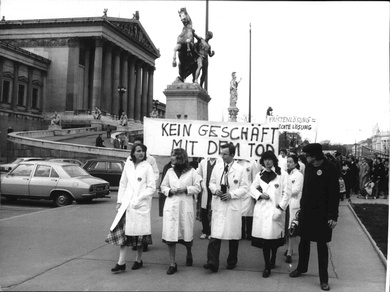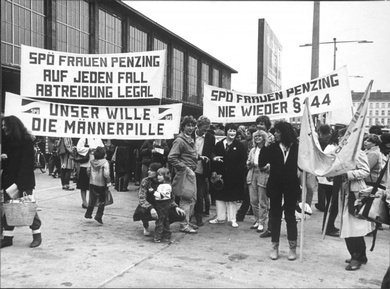Pursuant to sect.97 para.1 point 1 of the Criminal Code, the termination of a pregnancy is not a punishable offence if “performed by a physician after medical counseling within the first three months of pregnancy”. The adoption of the so-called “first-trimester rule” and its entry into force on 1 January 1975 were preceded by a long political, societal and legal controversy. Acting upon a petition filed by the government of the Province of Salzburg, the Constitutional Court dealt with the first-trimester provision before its entry into force. Within the framework of an abstract judicial review, the Court confirmed its compatibility with the Constitution and the European Convention on Human Rights.
The first-trimester provision was adopted in the context of a comprehensive recodification of criminal law under the Socialist government (1970-1983). The old Criminal Code dated from 1852 and had been partly modernized in 1971. It was replaced by the new Criminal Code in 1974 (Criminal Code 1974, Federal Law Gazette 1974/60). The major part of the Criminal Code was acceptable to all political parties and unanimously adopted by the National Council. In contrast, the provisions regarding the termination of pregnancy and, above all, the first-trimester rule, were adopted by the National Council solely on the basis of the votes of the Socialist majority. A suspensive veto of the Federal Council was overruled by the National Council. The new legal provisions entered into force on 1 January 1975.The Austrian People’s Party, the Freedom Party and the Catholic Church were all vehemently opposed to the legalization of abortion during the first three months of pregnancy. Moreover, organized civil society groups of advocates (“Action Committee for the repeal of sect.144”) and opponents of abortion (“Pro-Life Campaign”) were formed. A referendum on the “protection of human life” organized by the “Pro-Life Campaign” in 1975 was signed by 895,655 people.
The Constitutional Court took up the matter on account of a petition submitted by the conservative majority government of the Province of Salzburg, which on 15 March 1974 filed for the repeal of sect.97 para.1 point 1 of the Criminal Code on grounds of its unconstitutionality. It argued that the provision violated the European Convention on Human Rights (ECHR, Art. 2, 8 and 12: right to life, right to respect for private and family life, right to marry and found a family), which ranks as a constitutional law in Austria, as well as the principle of equality, according to which no human being must be regarded as inferior to others.
In its decision pronounced on 11 October 1974 (VfSlg 7400), the Constitutional Court rejected the petition. It argued that Art. 2 of the ECHR did not specify the point in time from which human life must be protected, and diverging opinions were to be found in relevant literature (protection from the instant of the embryo’s conception? protection from birth?). The Constitutional Court held the opinion that the scope of Art. 2 of the ECHR, considered as a whole, did not cover unborn life. Moreover, the Constitutional Court did not identify any violation of the other rights invoked by the government of the Province of Salzburg. Referring to the principle of equality, the Court noted: “Whatever the assessment of the provision at issue in terms of legal policy may be – rejection or approval, depending on the observer’s religious, ideological or scientific position – the Court has not found any evidence of bias violating the principle of equality in this provision.”
In line with the prevailing jurisprudence of the time, the Constitutional Court interpreted fundamental rights as typically liberal rights of defense against the state. Hence, it argued that the first-trimester rule did not constitute an “interference with human life by the state”. This interpretation changed in later years. Currently, fundamental rights are understood to provide the basis for safeguards and duties of protection of the state. Against this background, the reasons given for this decision would most likely be different today.



